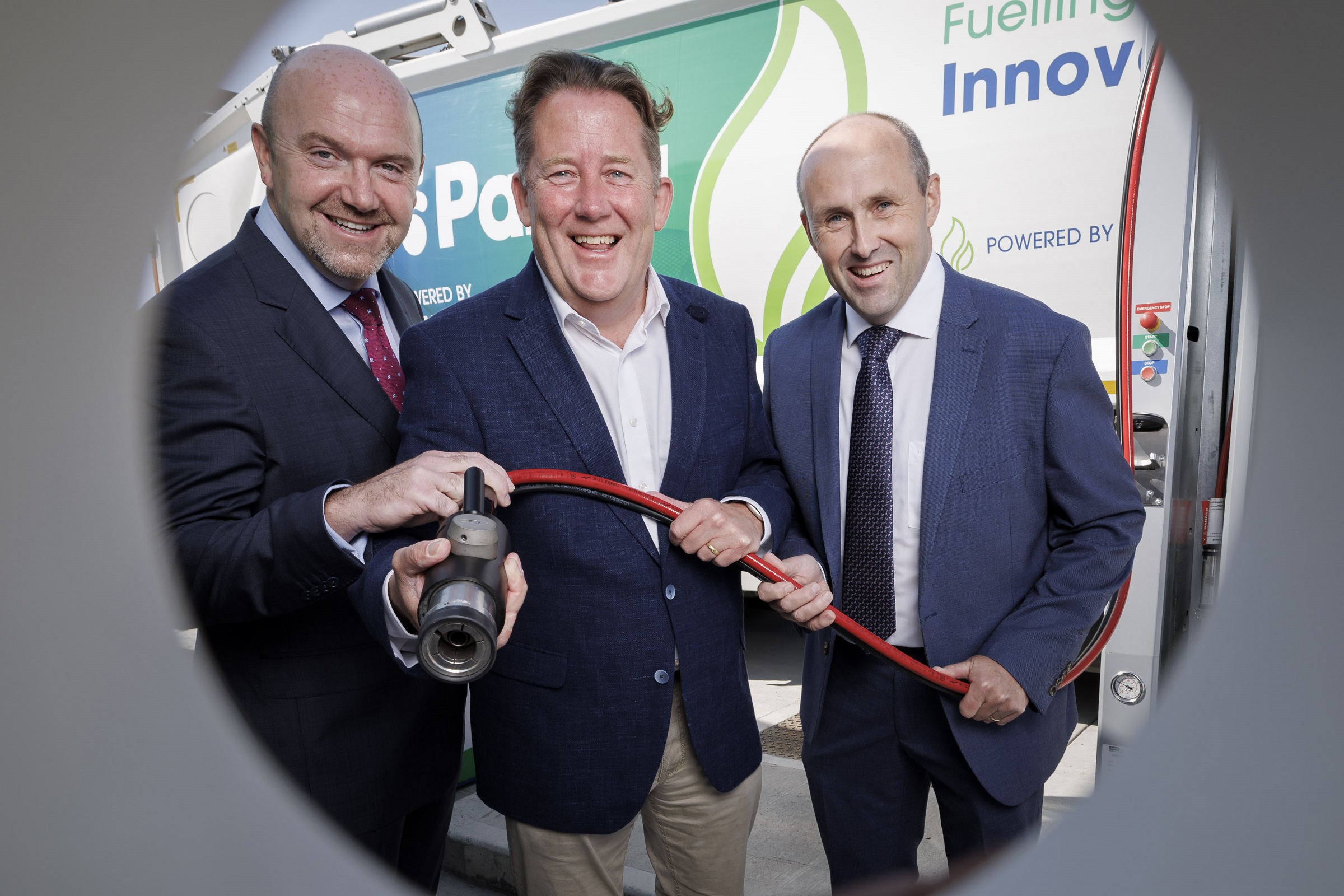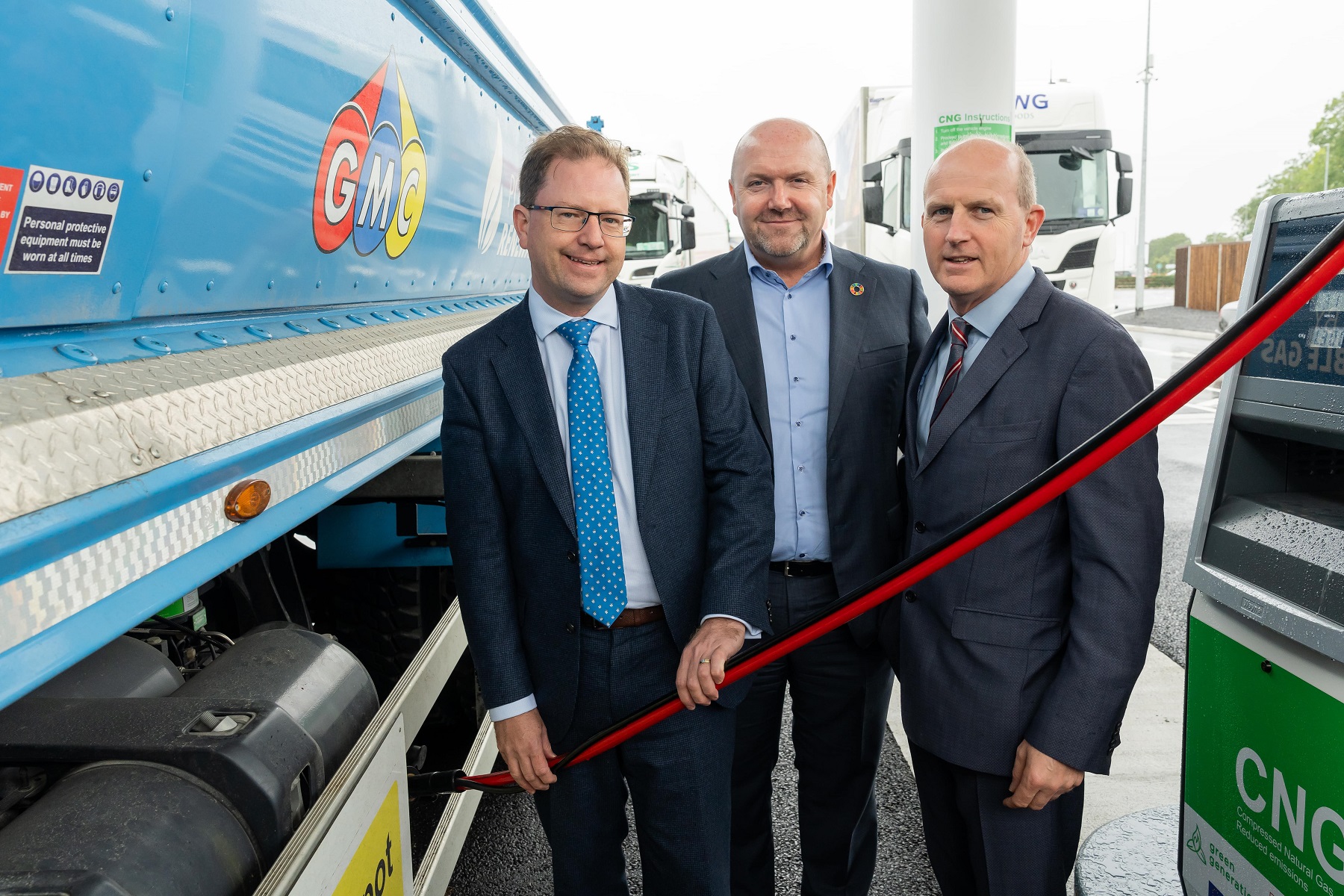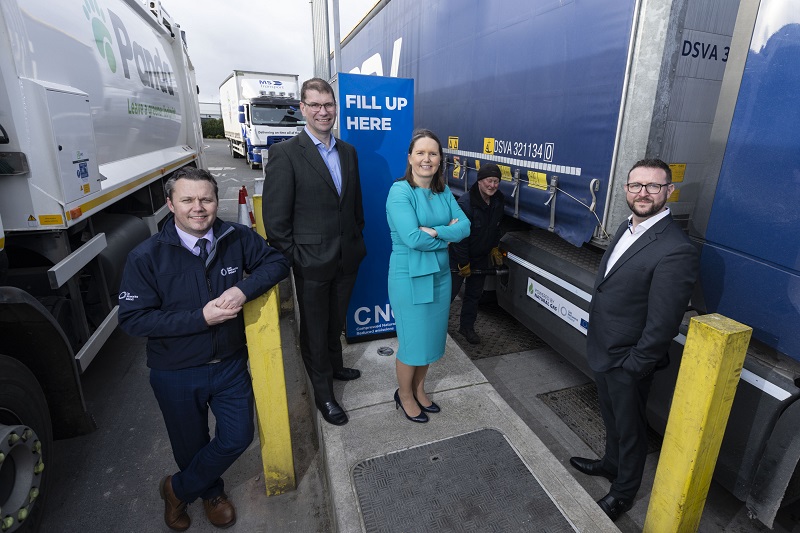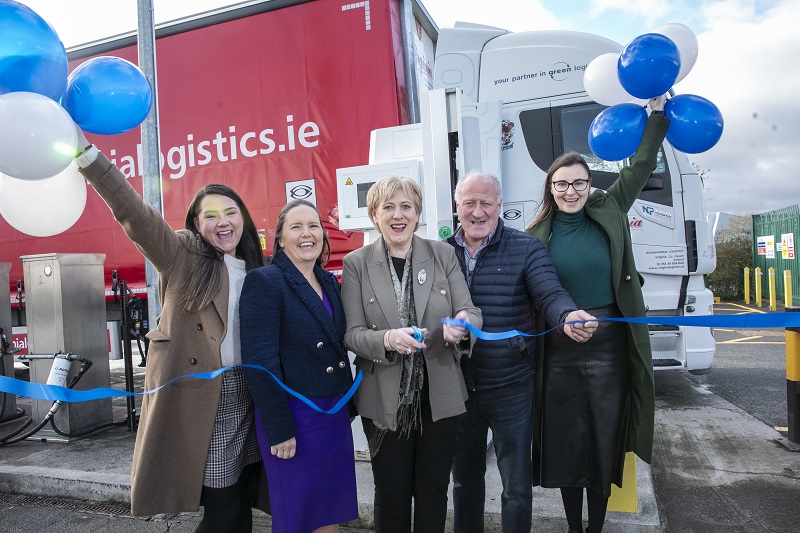CNG and BioCNG
Compressed natural gas (CNG) and renewable bioCNG are cleaner, reliable and proven fuel choices for heavy goods vehicles (HGVs) and bus fleets.
Contact us to learn moreVirginia International Logistics
Committed to sustainability, Virginia International Logistic have invested in 25 renewable bioCNG trucks and constructed a state-of-the-art bioCNG dispenser at their headquarters. This partnership with Gas Networks Ireland is helping them reduce emissions and lead the way in decarbonising Ireland’s commercial transport sector.
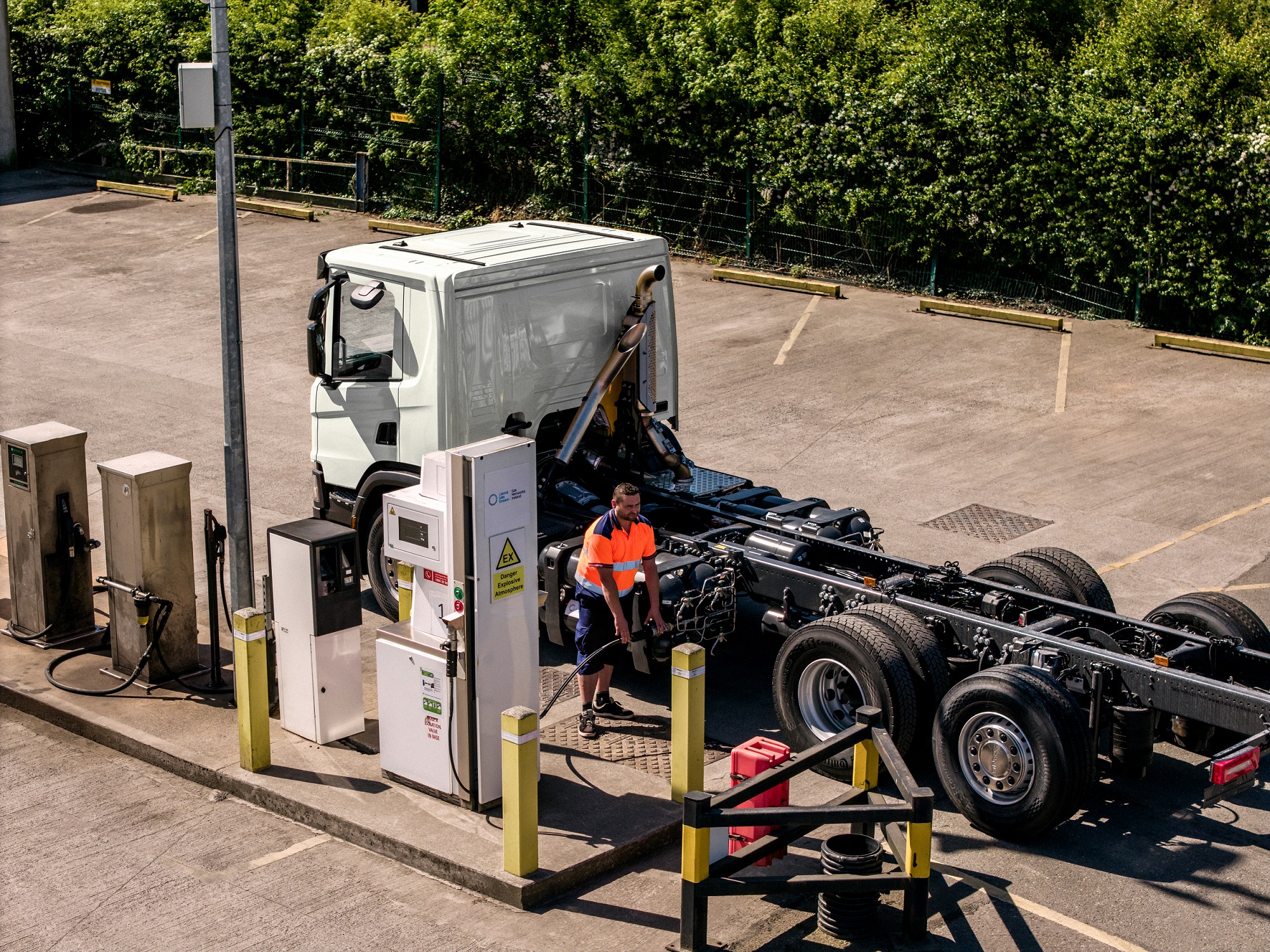
CNG and BioCNG refuelling stations
Gas Networks Ireland is leading the development of a new, cleaner heavy goods vehicle (HGV) and bus transport network.
Learn more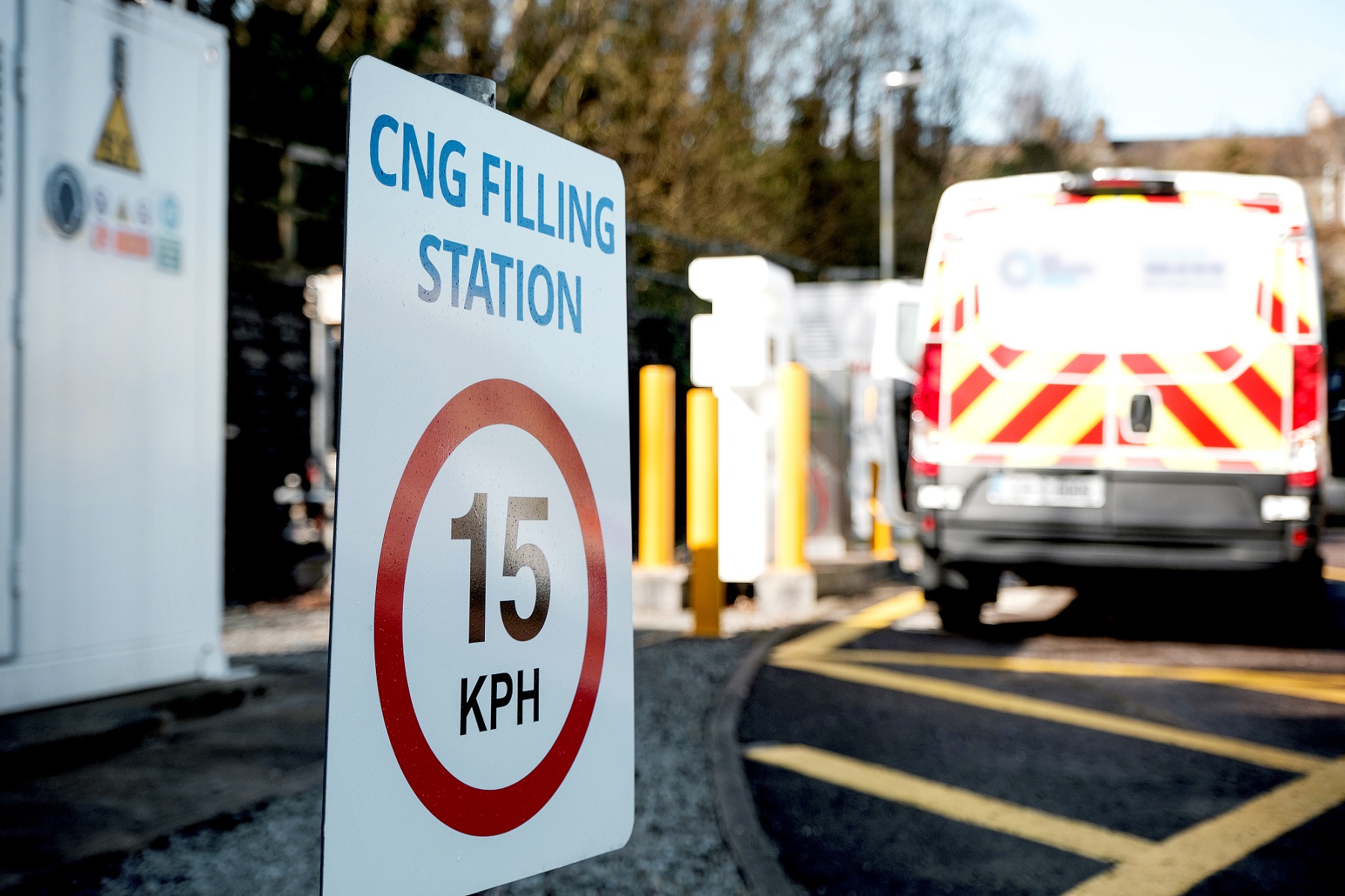
Helping our customers to decarbonise
Hear from our customer Virginia International Logistics who are already enjoying the benefits of CNG and discover why they find it the most sustainable choice for their business.
Learn morePathway to a Net Zero Carbon Network
Our Pathway to a Net Zero Carbon Network details a transformative journey towards a repurposed, resized, and fully decarbonised gas network by 2045.

